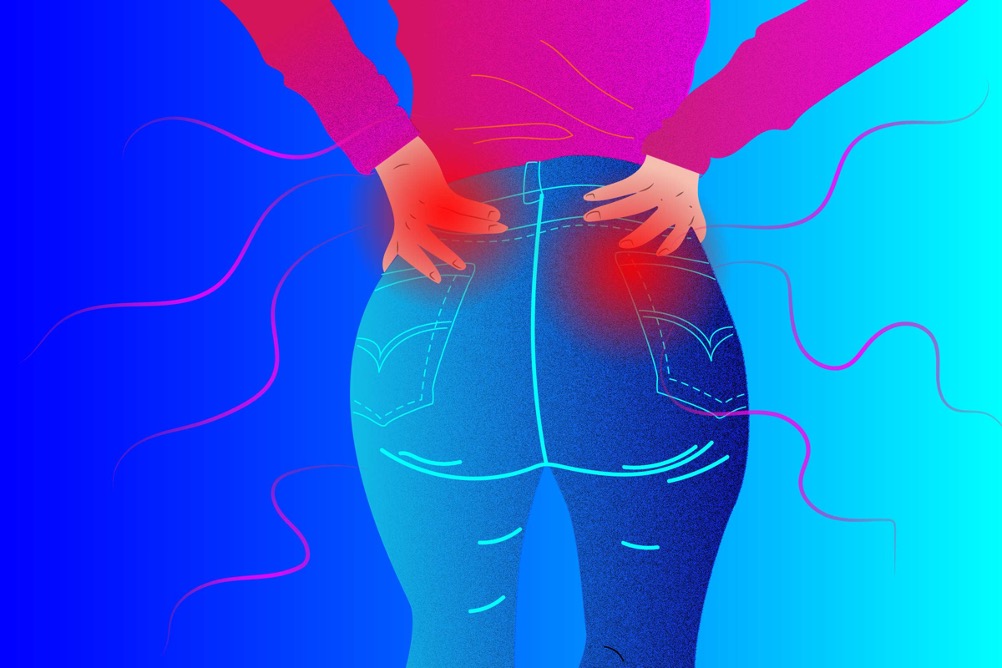Back
Sacral Pain, Pelvic Floor Physical Therapy Treatments, and Long-Term Maintenance
By Dr. Christine Martirez PT, DPT on 2/7/2024

Sacral pain can significantly impact one's quality of life. This blog post delves into the various causes of sacral pain, explores the role of pelvic floor physical therapy in alleviating symptoms, and offers insights into maintaining long-term relief.
Unraveling the Causes of Sacral Pain
Sacroiliac Joint Dysfunction:
The sacroiliac joint, connecting the sacrum and the ilium, can undergo dysfunction, via joint mobility or position changes, leading to pain. Causes include trauma, pregnancy-related changes, or degenerative conditions.Pelvic Floor Muscle Tension:
Tension or dysfunction in the pelvic floor muscles can contribute to sacral pain. Chronic stress, poor posture, or previous trauma may result in muscular imbalances and discomfort.Nerve Compression:
Nerves in the sacral region can become compressed due to various factors, such as herniated discs, bone spurs, or spinal stenosis, resulting in pain and discomfort.Endometriosis:
In women, endometriosis—a condition where tissue similar to the uterine lining grows outside the uterus—can lead to sacral pain, particularly during menstruation.Inflammatory Conditions:
Inflammatory conditions like sacroiliitis, often associated with spondyloarthropathies, can cause inflammation and pain in the sacral region.

The Role of Pelvic Floor Physical Therapy
Comprehensive Assessment:
Pelvic floor physical therapists conduct thorough assessments to identify the root causes of sacral pain. This includes evaluating muscle tone, joint function, and pelvic floor coordination.Targeted Exercises for Muscle Imbalances:
Pelvic floor physical therapy designs personalized exercise programs to address muscle imbalances. This involves evaluating the body from head to toes. Strengthening weak muscles and releasing tension in overactive ones can contribute to pain relief.Manual Therapy Techniques:
Hands-on techniques, including myofascial release and trigger point therapy, are employed to address specific areas of tension or dysfunction in the pelvic floor and surrounding muscles.Biofeedback for Awareness:
Biofeedback is utilized to enhance awareness of pelvic floor muscle function. This tool provides real-time feedback, helping individuals learn to relax or engage specific muscles to alleviate pain.Relaxation Techniques:
Learning relaxation techniques is a crucial aspect of pelvic floor physical therapy. Techniques such as diaphragmatic breathing and progressive muscle relaxation aid in reducing overall tension in the pelvic region.

Long-Term Maintenance of Sacral Pain Relief
Home Exercise Programs:
Patients are provided with home exercise programs to maintain the progress achieved through therapy. Consistent engagement in prescribed exercises promotes ongoing muscle health and pain prevention.Postural Awareness:
Maintaining good posture is essential for preventing the recurrence of sacral pain. Pelvic floor physical therapy emphasizes proper body mechanics and postural awareness during daily activities.Lifestyle Modifications:
Lifestyle factors, such as regular exercise, healthy nutrition, and stress management, contribute to long-term pain management. Addressing these aspects promotes overall well-being and reduces the likelihood of sacral pain recurrence.Periodic Follow-Up Sessions:
Periodic follow-up sessions with your pelvic floor physical therapist allow for ongoing assessment and adjustments to the treatment plan. This ensures that any emerging issues are addressed promptly, preventing the return of sacral pain.
Nurturing Comfort for the Long Run
Understanding the causes of sacral pain is the first step toward unlocking relief, and pelvic floor physical therapy stands as a beacon of hope for those seeking comprehensive and effective treatment. By addressing the root causes, engaging in targeted exercises, and incorporating long-term maintenance strategies, individuals can reclaim a life free from the constraints of sacral pain. Through this holistic approach, the journey toward lasting comfort becomes an empowering and transformative experience.
Do you suffer from sacral pain? Then pelvic floor physical therapy is for you! Here at Pelvic Health Center, our highly experienced team will be able to help craft a plan of care that suits your goals. Feel free to call us at 908-443-9880 or email us at contact@pelvichealthnj.com.
Read More:
How Chronic Pelvic Congestion in Men Contributes to Prostatitis By Shannon Strauch, PTA, STMT-1 on 12/11/2024 How lymphatic issues can cause symptoms of prostatitis Prostatitis and Tight Pelvic Floor Muscles: A Comprehensive Guide By Shannon Strauch, PTA, STMT-1 on 12/10/2024 How a tight pelvic floor can be the reason for prostatitis symptoms
Are you ready to live pain free?
Request An Appointment